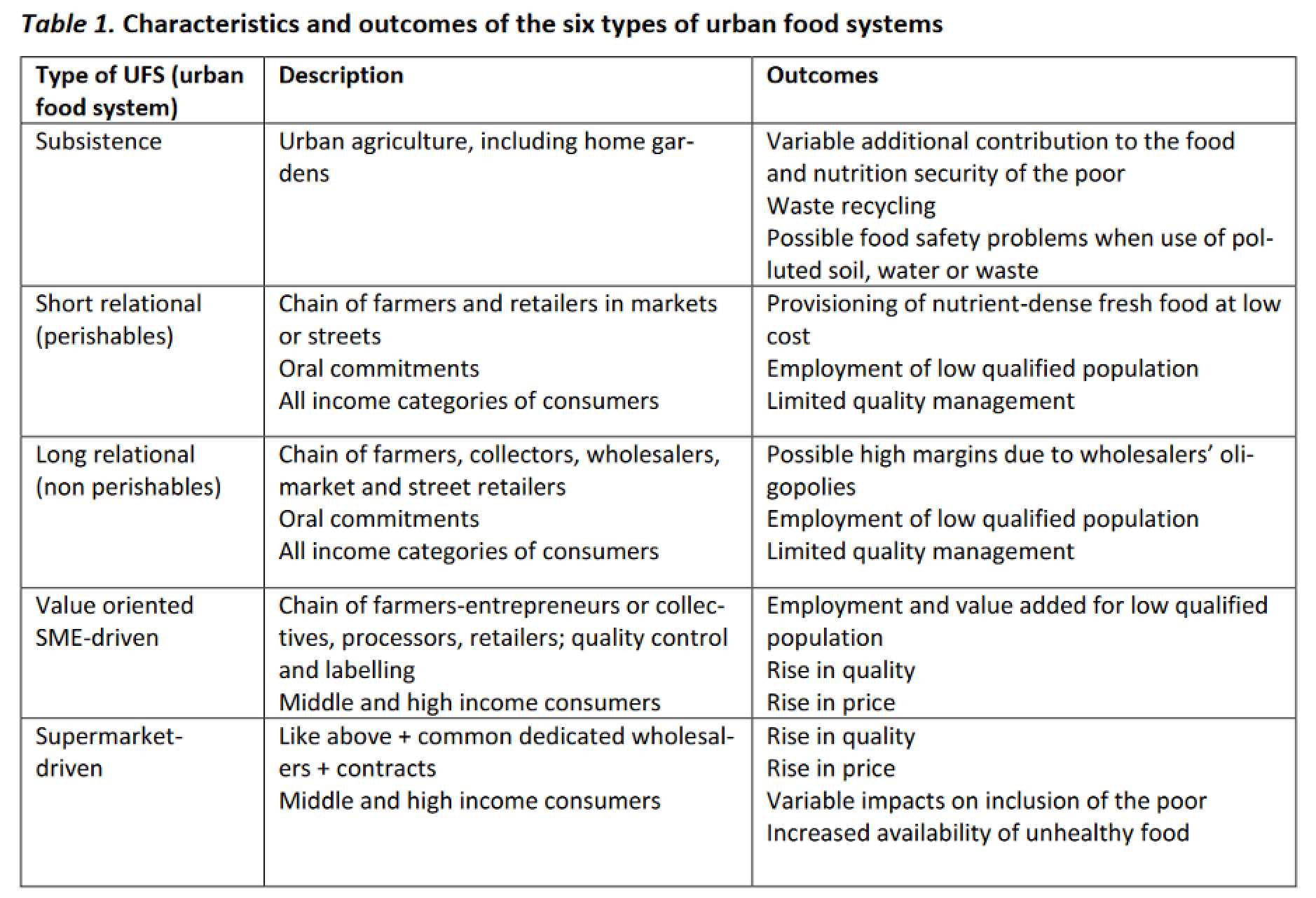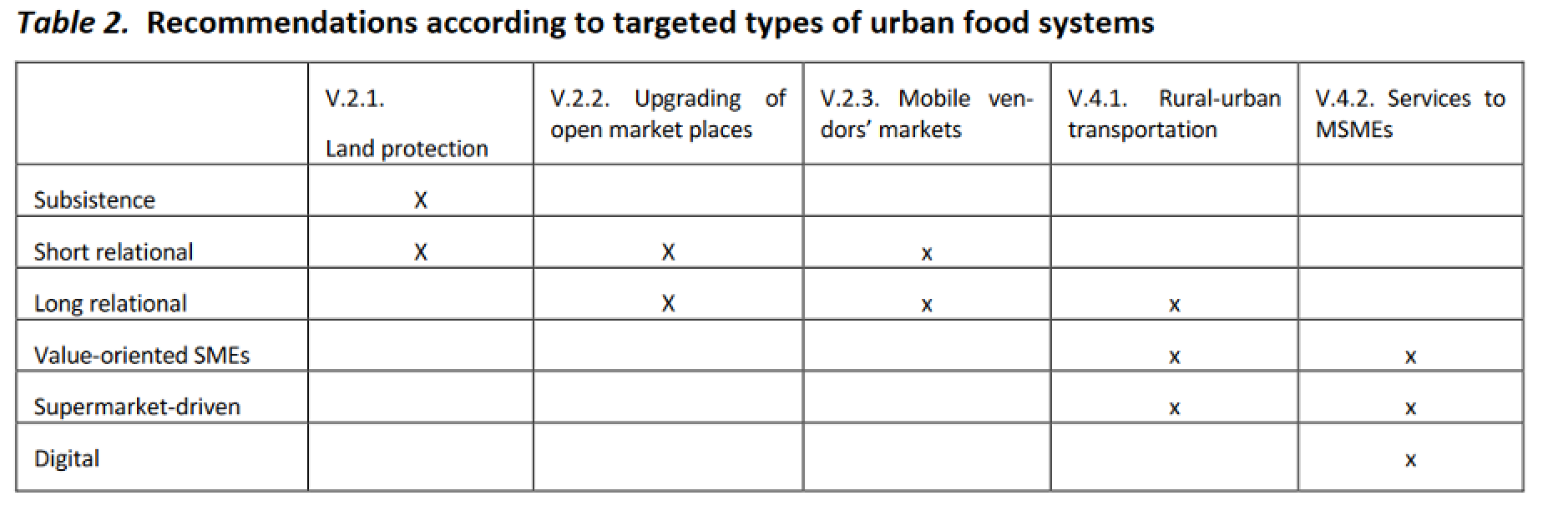This paper is concerned with: (i) challenges to food systems in Africa, Asia, and Latin America caused by urban development, (ii) how existing food systems respond to these challenges, and (iii) what can be recommended to improve their responsiveness. Urbanisation poses challenges related to food and nutritional security with co-existence of multiple forms of malnutrition, changing employment, and environmental protection. It is widely acknowledged that contemporary food systems respond differently to these challenges according to their traditional (small-scale, subsistence, informal) versus modern (large-scale, value-oriented, formal) characteristics.
The Brief proposes six types of urban food systems: subsistence, short relational, long relational, value-oriented SME-driven, value-oriented supermarket-driven, and digital. They correspond to different consumers’ food environments in terms of subsistence versus market orientation, access through retail markets, shops or supermarkets, diversity of food, prices and quality attributes. Urban food supply chains differ not only according to scale and technology but also according to the origin of food (rural, urban or imports) and the perishability of the product.
The Brief stresses the complementarity between short chains that supply many perishable and fresh food items (commonly nutrient-dense) and long chains that involve collectors, wholesalers, retailers, storage and processing enterprises for many staple food commodities rich in calories.
More and more small and medium enterprises are upgrading their business through technologies, consumer orientation, and stakeholders’ coordination patterns, including food clusters and alliances. Urban food systems based on micro, small and medium enterprises (MSMEs’) have proven resilient in times of crisis (including in the ongoing Covid-19 pandemic). Rather than promoting linear development from so-called ‘traditional’ towards ‘modern’ food systems, the brief proposes even sets of recommendations aimed at further upgrading MSMEs’ business, while improving the affordability and accessibility of food to ensure food and nutritional security and accounting for the specificities of the urban contexts of low-income countries.



| Year of publication | |
| Authors | |
| Geographic coverage | Latin America and the CaribbeanAsiaAfrica |
| Originally published | 17 Jun 2021 |
| Knowledge service | Metadata | Global Food and Nutrition Security | Sustainable Food Systems | Food marketingFood and nutrition securityFood consumptionFood processingFood supply chainFood system |
| Digital Europa Thesaurus (DET) | urban habitatfood safetyfood wasteprocessed food product |
